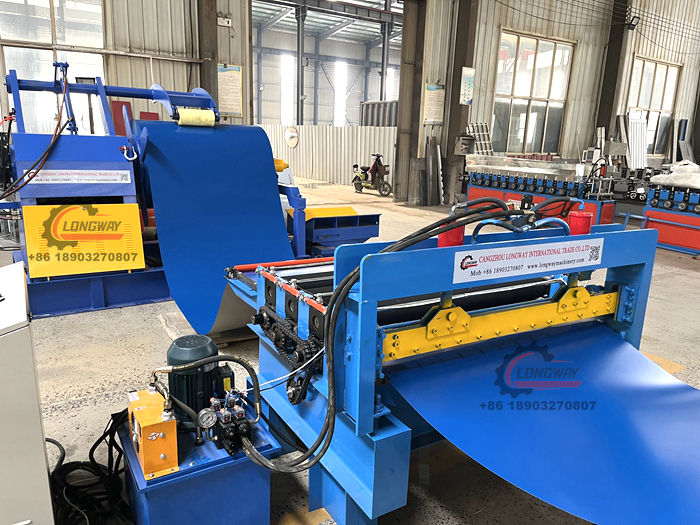Advancements in Cutting Machinery: Enhancing Precision and Efficiency-cut to length machine
Introduction: Cutting to Desired Lengths – Exploring the Versatile World of Cutting Machinery
Cutting machinery has revolutionized industries by providing solutions to tailor materials to specific lengths. This article delves into the machine designed for cutting materials to desired lengths, discussing its applications across various industries, including metal and wood processing. Highlighting its advantages such as efficiency, precision, and reliability, we explore how this machinery meets diverse needs.
Section 1: Cutting to Desired Lengths In this section, we explore the machine dedicated to cutting materials to desired lengths. We discuss its practical applications in different industries, emphasizing its role in metal and wood processing. The efficiency, precision, and reliability of this machine make it indispensable for achieving customized lengths, contributing significantly to the manufacturing processes.
1mm Simple steel coil cut to length machine
Section 2: Automated Cutting Solutions Automated Cutting Solutions – Integrating Machines for Seamless Production
This section delves into the realm of automated cutting solutions, explaining how machines cutting to desired lengths seamlessly integrate with other equipment and systems to establish automated production lines. We discuss the advantages of such solutions, including enhanced production efficiency, reduced labor costs, and minimized error rates. Real-world case studies from industries like automotive manufacturing and construction materials showcase the successful implementation of automated cutting solutions.
Section 3: Technological Innovations in Cutting Machinery Technological Innovations – Shaping the Future of Cutting Machines
The latest technological innovations in cutting machinery, such as laser cutting and CNC cutting, take center stage in this section. We explore how these innovations elevate the performance and efficiency of cutting machines. Additionally, we discuss their applications across diverse industries, from aerospace to electronics manufacturing. Looking forward, we touch upon potential future trends like smart automation and adaptive control, indicating the continuous evolution of cutting machinery.
Conclusion: In conclusion, cutting machinery has evolved into a crucial component across industries. From its fundamental role in tailoring materials to specific lengths to the integration of advanced technologies, these machines continue to shape the landscape of manufacturing. As industries embrace automation and technological innovations, the future promises even more sophisticated and efficient cutting solutions.
-
Roof Panel Machines: Buying Guide, Types, and PricingNewsJul.04, 2025
-
Purlin Machines: Types, Features, and Pricing GuideNewsJul.04, 2025
-
Metal Embossing Machines: Types, Applications, and Buying GuideNewsJul.04, 2025
-
Gutter Machines: Features, Types, and Cost BreakdownNewsJul.04, 2025
-
Cut to Length Line: Overview, Equipment, and Buying GuideNewsJul.04, 2025
-
Auto Stacker: Features, Applications, and Cost BreakdownNewsJul.04, 2025
-
Top Drywall Profile Machine Models for SaleNewsJun.05, 2025









